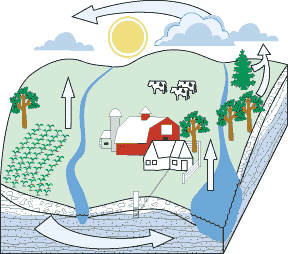
Groundwater is the water underneath the earth's surface that flows freely and can be pumped with wells. Groundwater is part of the earth's water cycle, originating from rainfall percolating through soil. Groundwater discharges to lakes and streams, and eventually evaporates to begin the water cycle once again.
